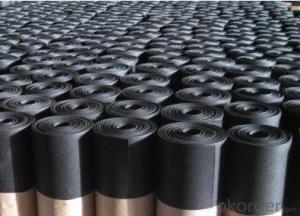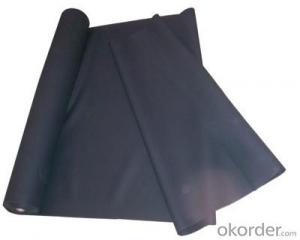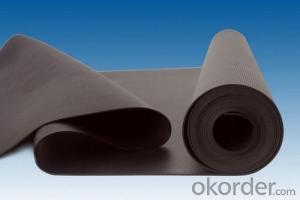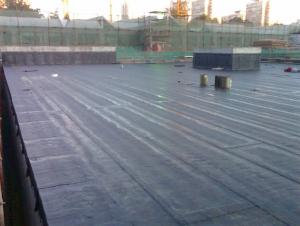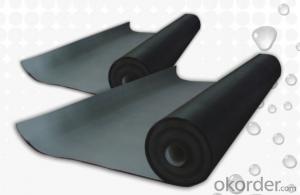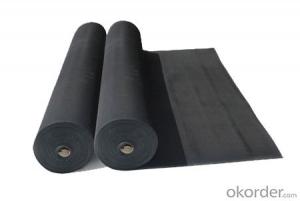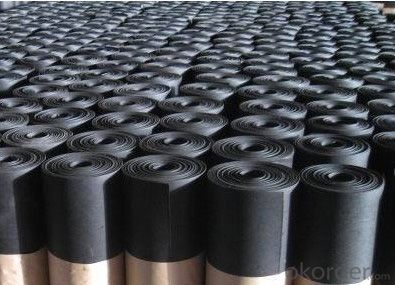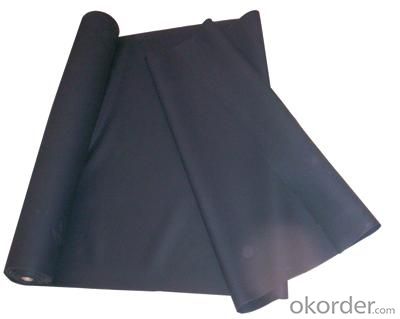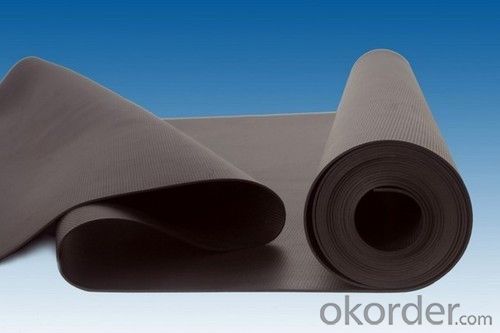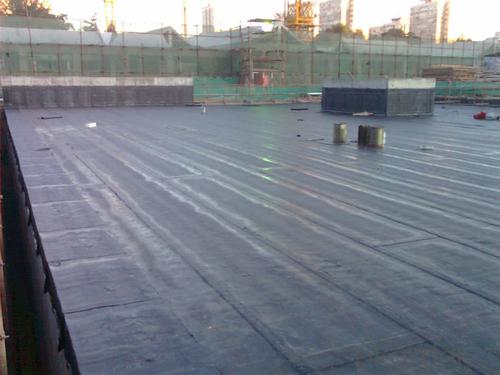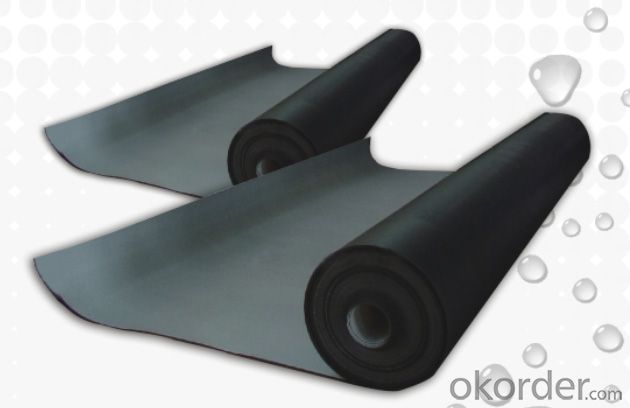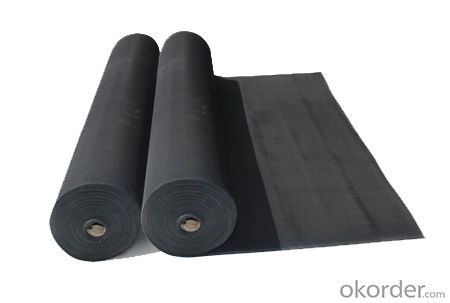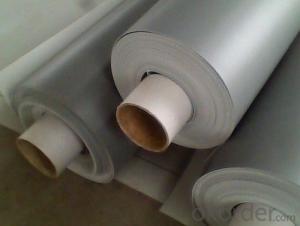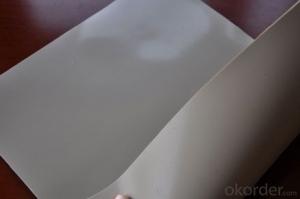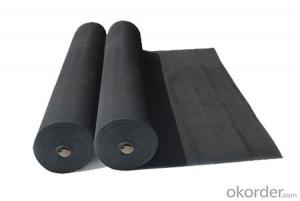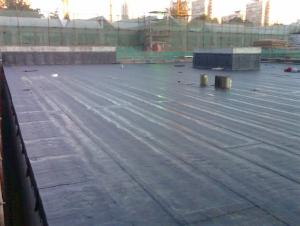EPDM Coiled Rubber Waterproof Membrane with 1.1mm Thickness
- Loading Port:
- Shanghai
- Payment Terms:
- TT OR LC
- Min Order Qty:
- 20000 m²
- Supply Capability:
- 5000000 m²/month
OKorder Service Pledge
OKorder Financial Service
You Might Also Like
EPDM Coiled Rubber Waterproof Membrane with 1.1mm Thickness
Description Of EPDM Coiled Rubber Waterproof Membrane with 1.1mm Thickness:
This waterproof coiled material is of high elasticity with best performance among high polumer
waterproof coiled material in the world.It is also the most typical one in the world.Waterproof coiled material made of ternary ethylene-propylene rubber is produced withthe use of the most advanced contiuous extrusion and vulcanization technology and related equipments which are specially designed for production of such product.It is good in compactness,without bubble and performance difference in length and breadth,perfomances reach or exceedthe demands of GB18173.1-2000 standard.
Main Features of EPDM Coiled Rubber Waterproof Membrane with 1.1mm Thickness:
A.Polyester based SBS Modified Bitumen Waterproofing Membrane
a. Strong impermeability
b. High tensile strength, elongation, ability to adapt the grassroots shrinkage deformation and cracking
c. Puncture-resistant, broken resistant, tear-resistant
d. The corrosion resistance, resistance to mildew, weathering good
e. Construction convenient, hot-melt can be operated Four Seasons Construction, reliable joints
B. Fiberglass based SBS Modified Bitumen Waterproofing Membrane
a. High tensile strength, stability of a good size
b. High Temperature good performance
c. Damage resistance, corrosion resistance, resistance to mildew, weathering good performance
d. Good construction performance, reliable joints.
Specifications of EPDM Coiled Rubber Waterproof Membrane with 1.1mm Thickness:
| Material | EPDM Rubber |
| Size | 1.2m (width)*20m (length) or customized, weldable type 2.05m or 4m width |
| Thick | 1.2mm, 1.5mm, 2.0mm |
| Type | Vulcanized & Weldable |
| Pattern | Non-reinforced (homogeneous) |
| Certificate | ISO9001/14001 |
Applications of EPDM Coiled Rubber Waterproof Membrane with 1.1mm Thickness:
1. Roofs, Basement, Toilet
2. Industrial and civil building waterproofing
3. Geo-synthetic liner for swimming pool, channels, irrigation system
4. Especially suit for projects with high requirements in durability, anti-corrosion and deformation
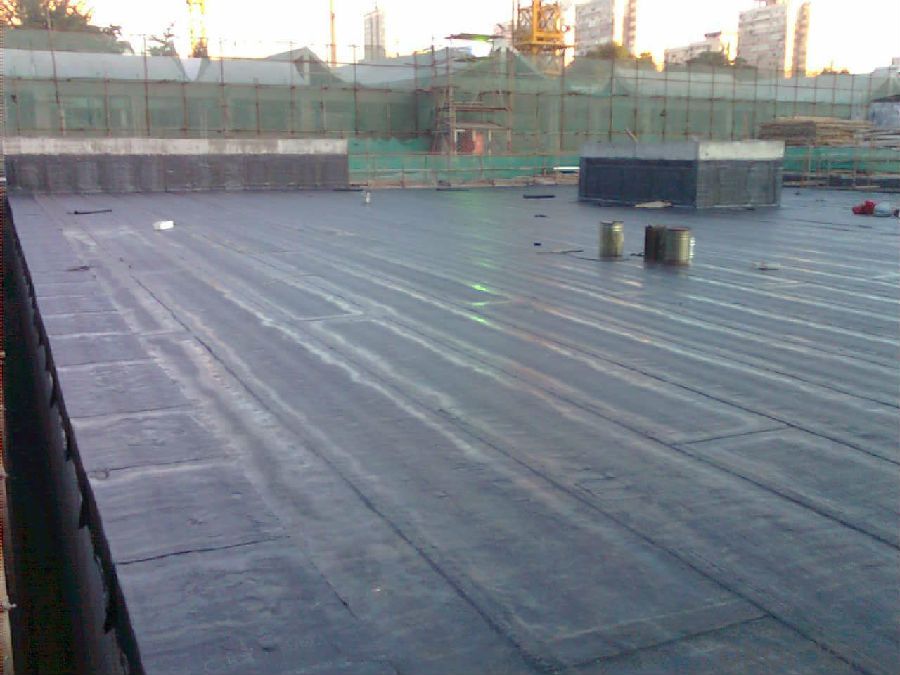
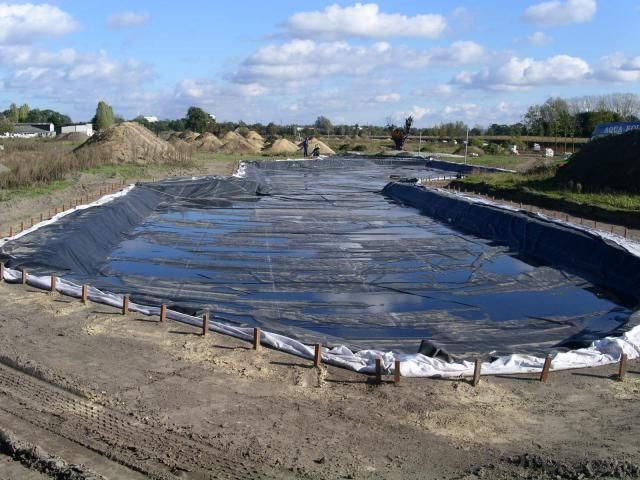
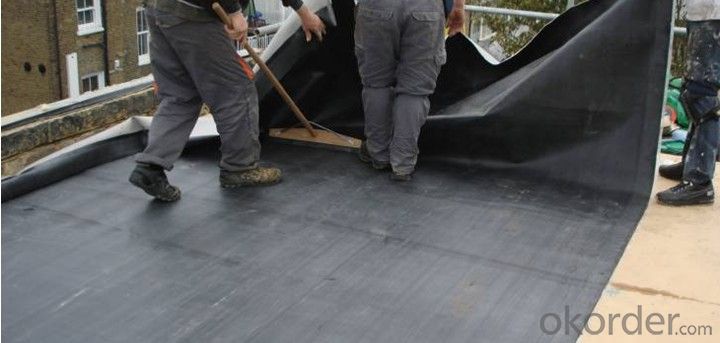
IMages of EPDM Coiled Rubber Waterproof Membrane with 1.1mm Thickness:
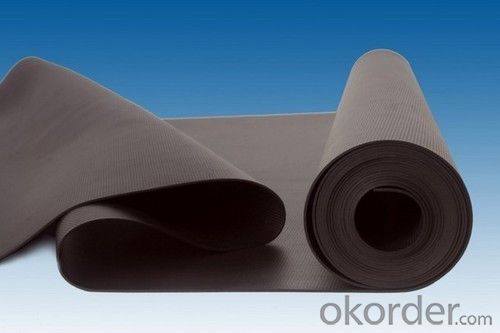
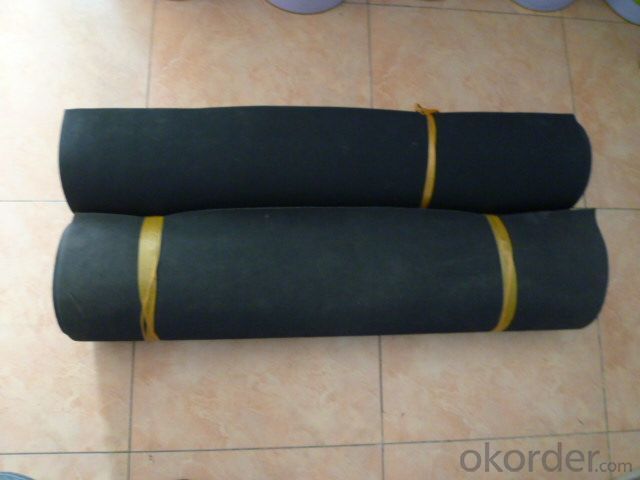
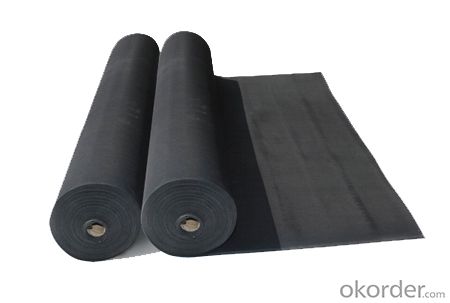
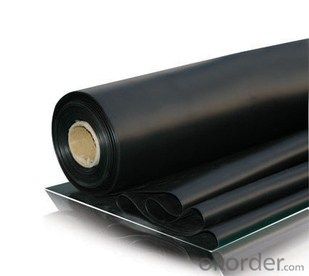
FAQ of EPDM Coiled Rubber Waterproof Membrane with 1.1mm Thickness:
1. What are we supplying?
We are specialized in producing Colorful Asphalt Roof Shingle, SBS/APP modified bitumen waterproof membrane, Self adhesive bitumen waterproof membrane, PVC waterproofing membrane, EPDM rubber roofing membrane, Single Component Polyurethane Waterproof Coating, and Spray Polyurea Waterproof Coating
.
2. How Many years experience do we have?
We have been exported to more than 20 countries in the past 15 years.
3. How long do we usually reply your request?
We always reply our customer within 24 hours.
- Q: Can a waterproofing membrane be used on roofs or only on vertical surfaces?
- A waterproofing membrane can be used on both roofs and vertical surfaces. In fact, it is commonly used to protect roofs from water damage. Roofing membranes are designed to provide a barrier against water infiltration, ensuring that the structure remains dry and free from leaks. These membranes are applied to the surface of the roof and provide a protective layer that prevents water from seeping through. Similarly, waterproofing membranes can also be used on vertical surfaces such as walls to prevent water ingress and protect the underlying structure. The main purpose of a waterproofing membrane is to create a watertight seal, regardless of whether it is applied to a horizontal or vertical surface. Hence, whether it is a roof or a vertical wall, a waterproofing membrane can effectively provide protection against water damage.
- Q: Can a waterproofing membrane be used in conjunction with insulation materials?
- Yes, a waterproofing membrane can be used in conjunction with insulation materials. In fact, it is often recommended to use both together in order to provide a comprehensive solution for protecting buildings from moisture and enhancing energy efficiency. The waterproofing membrane acts as a barrier to prevent water infiltration, while insulation materials help to regulate temperature and reduce heat loss or gain. By combining these two components, the building envelope can be effectively protected from water damage and insulated to maintain a comfortable indoor environment. It is important to ensure that the waterproofing membrane is properly installed and compatible with the insulation materials to achieve optimal performance and longevity.
- Q: Can waterproofing membranes be used on outdoor fountains?
- Indeed, outdoor fountains can benefit from the application of waterproofing membranes. The primary purpose of these membranes is to establish a protective shield that thwarts water infiltration, rendering them an excellent choice for safeguarding outdoor fountains against water-induced harm. Typically composed of water-resistant materials like rubber, PVC, or bitumen, these membranes effectively seal the fountain's structure. By applying a waterproofing membrane to an outdoor fountain, one can extend its longevity, avert leaks, and shield it from the elements.
- Q: Does a waterproofing membrane require any specialized tools or equipment for installation?
- Yes, a waterproofing membrane typically requires specialized tools and equipment for installation. These may include items such as a trowel, roller, brush, or sprayer for application, as well as a heat gun or torch for properly sealing the seams. Additionally, some membranes may require specific adhesives or primers for proper attachment. It is important to consult the manufacturer's guidelines and instructions for the specific membrane being used to ensure proper installation.
- Q: Can a waterproofing membrane be used for temporary structures or tents?
- Yes, a waterproofing membrane can be used for temporary structures or tents. Waterproofing membranes are designed to provide a protective barrier against water, preventing it from penetrating the surface and causing damage. This makes them an ideal choice for temporary structures or tents, as they can effectively keep the interior dry during rain or other wet conditions. Additionally, waterproofing membranes are often lightweight and flexible, making them easy to install and remove, which is especially beneficial for temporary structures or tents that may need to be relocated or dismantled.
- Q: Can a waterproofing membrane be used on aluminum surfaces?
- Indeed, aluminum surfaces can benefit from the application of a waterproofing membrane. Such membranes possess great versatility, enabling their use on a wide range of surfaces, including aluminum. Their purpose is to create a safeguarding barrier against water and moisture, effectively preventing any potential leaks or water-related harm. By employing a waterproofing membrane on aluminum surfaces, the material's longevity can be significantly extended as it remains protected from the detrimental effects of corrosion and rust, which are often triggered by water exposure. Nevertheless, it is imperative to carefully select a waterproofing membrane that is both compatible with aluminum and suitable for the specific application in order to achieve the most optimal outcomes.
- Q: Can a waterproofing membrane be used in basements and foundations?
- Basements and foundations can benefit greatly from the use of a waterproofing membrane. It is highly recommended to apply this protective layer in order to safeguard against water infiltration and moisture-related problems. Typically, the membrane is applied on the outer side of the foundation walls and basement floors, effectively creating a barrier that prevents water from permeating through the concrete. This essential measure ensures that the basement and foundation remain dry, minimizing the risk of water damage, mold growth, and structural complications. There are several types of waterproofing membranes available, including bituminous, rubberized asphalt, and liquid-applied options. This variety allows for flexibility when selecting the most suitable option according to the specific project requirements. Ultimately, installing a waterproofing membrane is a reliable means of improving the overall resilience and longevity of basements and foundations.
- Q: What is waterproofing membrane?
- Waterproof membrane is mainly used for building walls, roofs, as well as tunnels, highways, landfills, etc., to resist the external rain, groundwater leakage can be curled into a roll of flexible building materials, as the basis for engineering And no leakage between the building connection, the entire project is the first waterproof barrier, the entire project plays a vital role. The main products are asphalt waterproofing membrane and polymer waterproofing membrane.
- Q: Can a waterproofing membrane be used for a sports facility?
- Yes, a waterproofing membrane can be used for a sports facility. Waterproofing membranes are commonly used to protect buildings and structures from water damage, including sports facilities. They can be applied to various surfaces such as roofs, walls, and floors to prevent water infiltration and ensure a dry and safe environment for athletes and spectators.
- Q: What is the best waterproofing membrane for my project?
- The best waterproofing membrane for your project depends on several factors such as the type of project, location, budget, and specific requirements. It is recommended to consult with a professional waterproofing expert who can assess your project's needs and recommend the most suitable membrane based on these factors.
Send your message to us
EPDM Coiled Rubber Waterproof Membrane with 1.1mm Thickness
- Loading Port:
- Shanghai
- Payment Terms:
- TT OR LC
- Min Order Qty:
- 20000 m²
- Supply Capability:
- 5000000 m²/month
OKorder Service Pledge
OKorder Financial Service
Similar products
Hot products
Hot Searches
Related keywords
